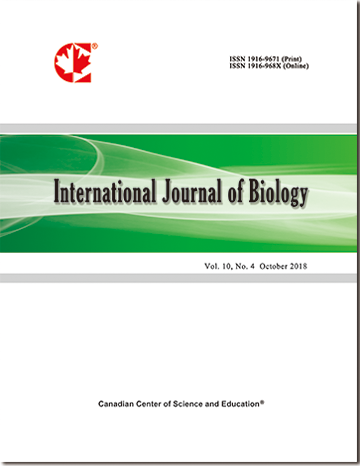The Correlation of Francisella tularensis on Size and Supercooling of Dermacentor variabilis
- Amal El Nabbout
- Brittany Taylor
- James Kho
- Mandy Mitton
- Tatiana Rossolimo
Abstract
Overwintering tick survival is essential for the continuation of a tick’s lifecycle. Recent studies have found that infections with particular microorganisms can alter the physiology of ticks and, in some cases, increase their cold hardiness. To date, the influence of Francisella tularensis on Dermacentor variabilis (Say) has not been studied and thus the symbiosis between the two has been unknown. This study determined the infection rate of F. tularensis as well as examined the relationship between F. tularensis and the supercooling point (SCP) and size of D. variabilis of ticks from Nova Scotia, Canada. Local veterinarians provided adult ticks. The SCP of each tick was recorded using Logger Pro and infection status was found using Polymerase Chain Reaction. Of the 203 ticks tested, 9.8% were infected with F. tularensis. When the sexes were considered separately, 4% of males, 11.7% engorged females and 17.3% of non-engorged females were infected. Upon further analysis, a statistically significant difference was found between infected ticks and changes in thier SCPs, but there was no statistically significant difference between infected ticks and changes in size. This suggests that F. tularensis benefits D. variabilis by decreasing their SCPs, and thereby enhancing their overwintering capabilities. While other physiological influences of F. tularensis on D. variabilis remain unknown, the results from this study support previous research that bacterium species such as F. tularensis is able to influence the survivability of its tick host in the form of altering their freezing tolerance but does not affect the physical size of D. variabilis.
- Full Text:
 PDF
PDF
- DOI:10.5539/ijb.v10n2p15
Index
- ACNP
- AGRICOLA
- BASE (Bielefeld Academic Search Engine)
- CAB Abstracts
- CiteFactor
- CNKI Scholar
- CrossRef
- DTU Library
- Elektronische Zeitschriftenbibliothek (EZB)
- Excellence in Research for Australia (ERA)
- Google Scholar
- Infotrieve
- LIVIVO (ZB MED)
- LOCKSS
- Max Planck Institutes
- MIAR
- PKP Open Archives Harvester
- Qualis/CAPES
- ResearchGate
- ROAD
- SafetyLit
- SHERPA/RoMEO
- Technische Informationsbibliothek (TIB)
- Universe Digital Library
- WorldCat
Contact
- Ryan JonesEditorial Assistant
- ijb@ccsenet.org
